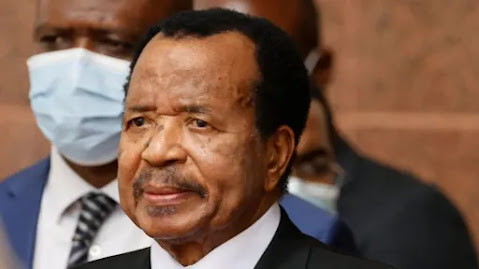Paul Biya, 92, Declares Bid for Eighth Term: A 43-Year Reign Continues
A Longstanding Leader: Biya's Unyielding Ambition
In a bold move that has drawn both support and criticism, Paul Biya, the world’s oldest head of state at 92, has announced his intention to run for re-election in October, aiming to extend his remarkable 43-year tenure as President of Cameroon. In a post on social media platform X, Biya reassured his constituents, stating, “Rest assured that my determination to serve you matches the urgency of the challenges we face.”
Calls for Continuity Amidst Controversy
Biya's decision to pursue an eighth term comes in response to what he described as “numerous and insistent” calls from citizens across Cameroon and the diaspora. However, his administration has faced significant scrutiny over issues such as corruption, embezzlement, and poor governance, alongside a failure to effectively address ongoing security challenges.
Concerns about Biya's health have also been prevalent, particularly following his six-week absence from public view last year, which fueled speculation about his well-being and sparked unfounded rumors of his death.
An Unbroken Record: The Path to Power
Since ascending to power in 1982, Biya has never lost an election. If successful in the upcoming vote, he could remain in office until nearly 100 years old. Despite his long-standing rule, there are increasing calls from both domestic and international observers for him to step aside and allow for new leadership in the central African nation.
Political Shifts: Allies Turn Rivals
Biya's candidacy comes on the heels of a political rift with key allies from the northern regions, who have historically been instrumental in securing votes for him. Notable figures such as Issa Tchiroma Bakary, a prominent minister, and Bello Bouba Maigari, a former Prime Minister, have recently departed from the ruling coalition, each announcing their own plans to run in the election. Tchiroma has publicly stated that the Biya administration has “broken” public trust, prompting his switch to a rival party.
A Competitive Landscape: Opposition Figures Emerge
The political landscape is becoming increasingly competitive, with several opposition figures, including Maurice Kamto, who was the runner-up in the 2018 elections, as well as Joshua Osih, Akere Muna, and Cabral Libii, announcing their candidacies. Despite this, members of Biya's governing party, the Cameroon People's Democratic Movement, have rallied behind him, publicly urging him to seek another term. As the party leader, he is already viewed as the de facto candidate.
A Controversial Legacy: The End of Term Limits
Biya's ability to run indefinitely stems from his abolition of term limits in 2008, a move that has allowed him to maintain his grip on power. In the 2018 elections, he secured over 71% of the vote, although opposition groups decried the process as riddled with irregularities.
As the election approaches, the world watches closely to see whether Biya will continue his lengthy reign or if the winds of change will finally sweep through Cameroon, ushering in a new era of leadership.
